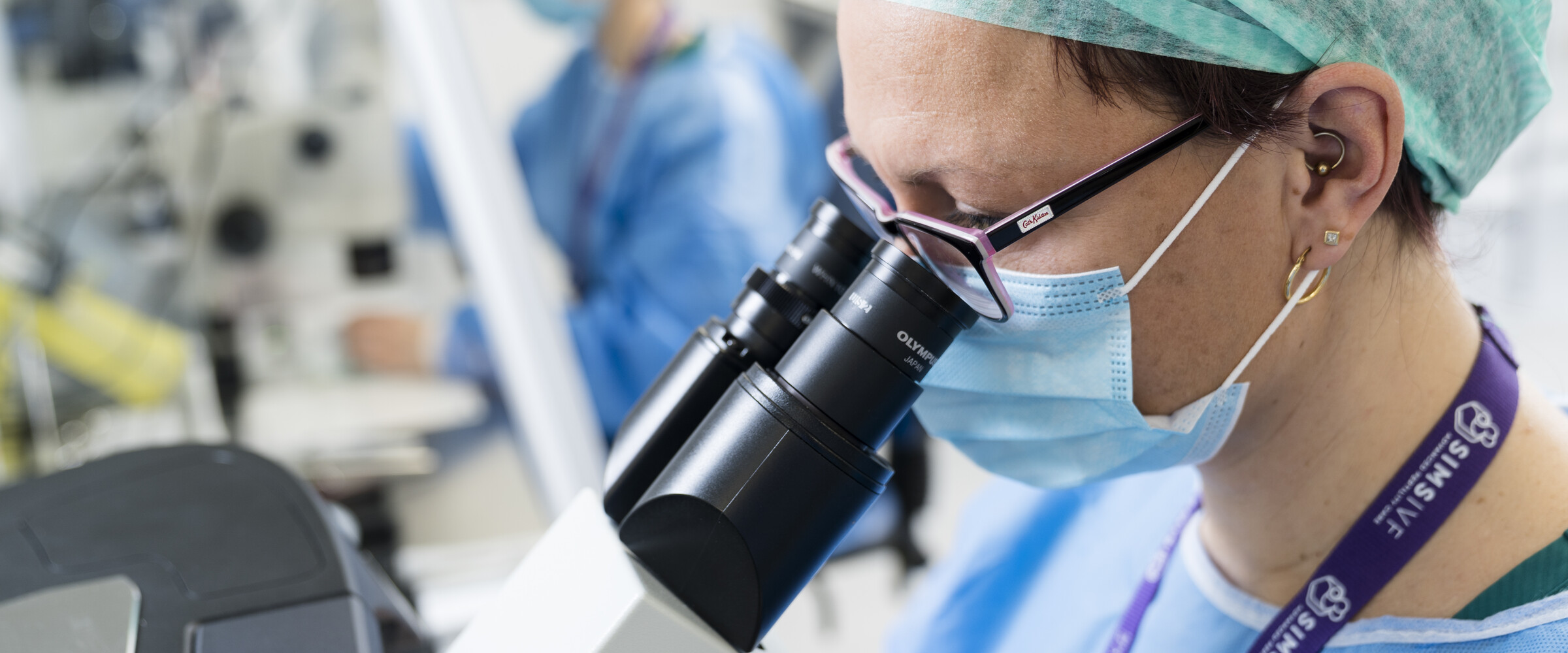
What Is Preimplantation Genetic Screening (PGS)?
Preimplantation Genetic Screening (PGS) is a specialised diagnostic technique used to test embryos for chromosomal abnormalities. PGS allows embryologists to identify chromosomally normal embryos for implantation in an IVF or ICSI cycle to increase the chances of achieving a successful pregnancy.
Who is PGS suitable for?
Any patient undergoing fertility treatment can choose to undergo a PGS cycle. However, there are some patients that may particularly benefit from PGS.
These are:
- Older women who are more likely to produce eggs with chromosomal abnormalities
- Women who have had multiple miscarriages or multiple failed IVF cycles - PGS can potentially identify problems that have caused previous IVF cycles or pregnancies to fail
- Those who have had a known pregnancy with an embryo with a chromosomal abnormality - PGS can ensure that there are no chromosomal abnormalities in this specific transfer
How is PGS performed?
Embryos are monitored until they reach the blastocyst stage (day 5 or 6) and the best quality embryos are chosen to be biopsied by a highly skilled embryologist. This biopsy can identify if that embryo has the correct number of chromosomes, determining whether that embryo should be used for a transfer or not.
To ensure PGS doesn't cause any harm to the child that embryo may form, the biopsy only takes cells from the trophectoderm layer of cells (the cells that go on to form the placenta), rather than the inner cell mass (the cells that go on to form the baby). The biopsied cells are then placed in test tubes labelled with the patient details and sent to a genetics testing lab, with the labelling being witnessed according to our strict protocols, to ensure accuracy. The results should then be available in 3-4 weeks time, with the embryos being frozen in the meantime.
Does PGS guarantee I will become pregnant?
No, unfortunately not. However, PGS can lessen the time it takes to become pregnant by identifying the best embryo or embryos available for transfer and using these embryos first.
How much does PGS cost?
A PGS cycle (biopsy of up to 4 embryos) costs €8,900.
Do I have to go through IVF or ICSI to avail of PGS?
Yes, the only way to perform PGS is to create an embryo outside of the womb through IVF or ICSI.
Are there risks involved in PGS?
All medical procedures involve a certain level of risk and PGS is no different.
The potential risks of PGS are:
- The PGS procedure involves removing a small number of cells from the outer layer of the embryo, therefore there is a small risk of the embryo not surviving this procedure
- There is a risk that all embryos tested may come back chromosomally abnormal, meaning no embryos can be transferred back to the patient
- There is a risk that no result may be returned from the test
With regards to the long-term effects of PGS, there is no evidence to suggest PGS is harmful. However, it's important to note that this is still a very new procedure so there may be long-term effects that we are not yet aware of.
Is PGS right for me?
To learn more about how PGS may be able to help you conceive, you can book an appointment with one of our fertility specialists.

